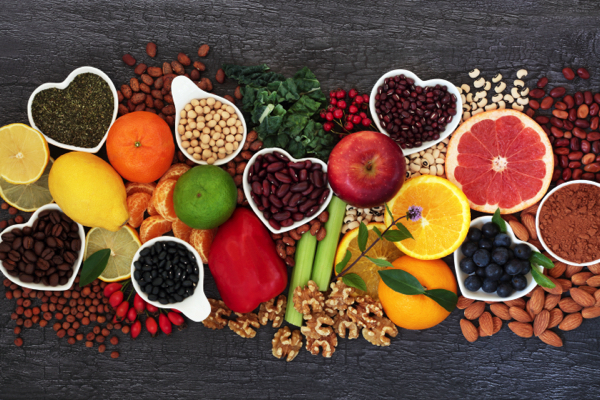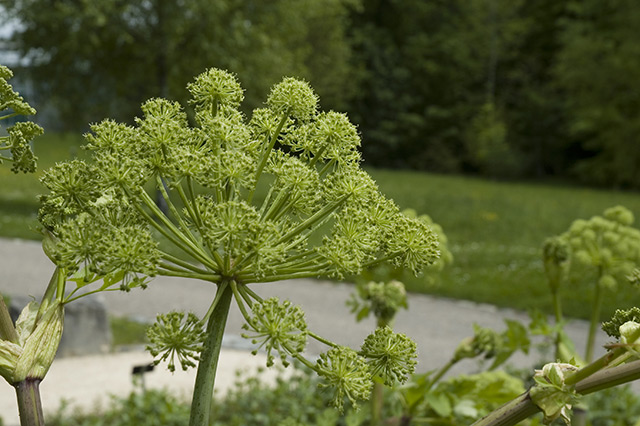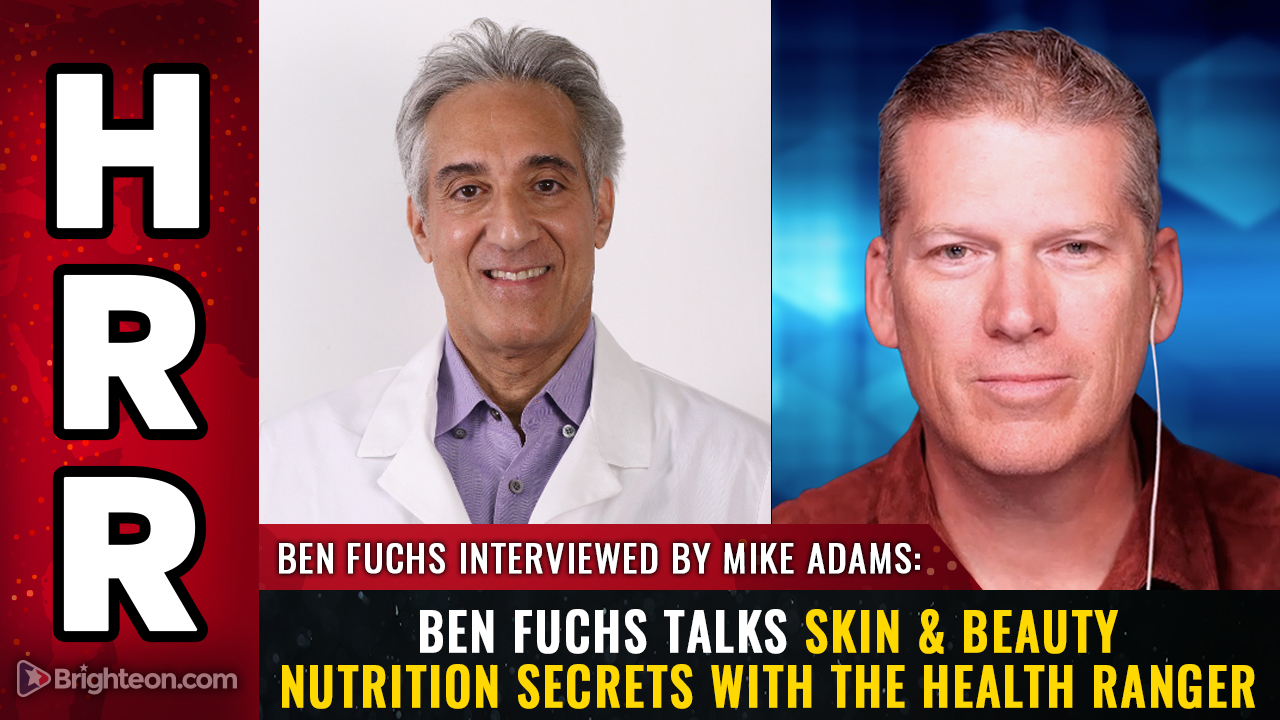“Diet, Nutrition and Cancer”: Decades of research illuminate the path to prevention
05/29/2025 / By Kevin Hughes

- The National Research Council’s 1980 report established a connection between diet and cancer risk, emphasizing the long latency period between dietary exposures and cancer development.
- High fat intake (especially above 30 percent of total calories) is linked to increased risk of breast, prostate and colorectal cancers, while processed foods (salt-cured, smoked) may contain carcinogens.
- Fruits, vegetables and whole grains are associated with lower cancer risk, with vitamins A (beta-carotene) and C showing potential protective effects.
- Naturally occurring carcinogens (e.g., aflatoxin) and food additives (e.g., saccharin) were examined, though human risks for many additives remain unclear.
- Recommendations include reducing fat, increasing plant-based foods, limiting alcohol and processed meats, and monitoring food contaminants—with updates needed as research evolves.
In a world where cancer remains one of the most formidable health challenges, understanding the intricate relationship between diet, nutrition and cancer risk has become a critical pursuit. This journey of discovery began in earnest in 1980 when the National Research Council’s Committee on Diet, Nutrition and Cancer, commissioned by the National Cancer Institute, embarked on a monumental task: to review the scientific evidence on how dietary choices impact cancer risk. Their work has since provided a foundation for informed decision-making, offering insights that continue to resonate with researchers and the public alike.
The committee’s efforts culminated in two landmark reports which produced the National Research Council’s book “Diet, Nutrition and Cancer.” The first report presents interim dietary guidelines based on the existing scientific understanding of the diet-cancer link. The second report outlines future research directions, underscoring the dynamic nature of this field of study. The committee, comprising experts in biochemistry, epidemiology, experimental oncology, nutrition and toxicology, faced the daunting challenge of synthesizing vast and complex data into actionable recommendations.
The investigation primarily focused on the nutritional components of diet and their relationship with cancer. Acknowledging the subject’s breadth and the rapid pace of new research, the committee directed readers to other comprehensive reviews on specific topics such as nitrates, nitrites, N-nitroso compounds and drinking water.
One of the most significant takeaways from the report is the emphasis on the long latency period between exposure to carcinogens and the onset of cancer. This highlights the importance of dietary habits in influencing future cancer risk. The committee’s analysis of epidemiological studies, animal experiments and in vitro tests for genetic toxicity revealed these critical insights:
- Dietary fat and cancer risk: The evidence strongly suggests a link between high fat consumption and increased cancer risk, particularly for cancers of the breast, prostate and large bowel. The committee recommends limiting total fat intake to no more than 30 percent of total calories, emphasizing the reduction of both saturated and unsaturated fats.
- The power of plant-based foods: The report underscores the protective role of fruits, vegetables and whole grain cereal products. These foods have been inversely correlated with the incidence of various cancers, suggesting that a diet rich in plant-based foods can significantly reduce cancer risk.
- Naturally occurring substances: The committee also examined the role of naturally occurring substances in food, such as mycotoxins. Aflatoxin, a potent hepatocarcinogen, is a particular concern in parts of Africa and Asia, though exposure levels in the United States are generally low.
- Food additives and contaminants: The potential carcinogenic effects of certain food additives and contaminants were also explored. For instance, while high doses of saccharin have been linked to bladder cancer in rats, the evidence for carcinogenicity in humans remains inconclusive.
- Vitamins and minerals: The report discusses the role of vitamins and minerals, noting that vitamin A and its precursors, like beta-carotene, may offer some protection against cancer. Similarly, vitamin C has been shown to inhibit the formation of carcinogenic N-nitroso compounds. However, the committee advises caution with supplements, as high doses of certain vitamins can be toxic.
Based on the current evidence, the committee proposed several interim dietary guidelines:
- Reduce fat intake: Aim for a total fat consumption of no more than 30 percent of total calories.
- Increase fruit and vegetable xonsumption: Incorporate a variety of fruits, vegetables and whole grain cereal products into your daily diet.
- Minimize consumption of salt-cured or smoked foods: These foods may contain higher levels of carcinogens like polycyclic aromatic hydrocarbons and N-nitroso compounds.
- Limit alcohol consumption: Excessive alcohol intake, especially when combined with smoking, is associated with an increased risk of cancer of the upper gastrointestinal and respiratory tracts.
- Monitor food contaminants: Efforts should continue to minimize contamination of foods with carcinogens from any source.
The committee emphasized the need for ongoing research, suggesting that the National Cancer Institute review these dietary guidelines at least every five years. This is crucial because our understanding of the diet-cancer relationship is continually evolving.
In conclusion, while people may not have all the answers, the evidence strongly suggests that diet plays a significant role in cancer risk. By making informed choices, such as reducing fat intake, eating more fruits and vegetables, and minimizing the consumption of certain foods, people can take proactive steps to reduce their risk. As people continue to learn more, staying informed and adaptable in their dietary choices will be key to promoting long-term health and well-being.
Watch this video about the National Research Council’s book “Diet, Nutrition and Cancer.”
This video is from the BrightLearn channel on Brighteon.com.
Sources include:
Submit a correction >>
Tagged Under:
aflatoxin, beta carotene, biochemistry, cancer, carcinogens, epidemiology, fruits, high fat consumption, mycotoxins, N-nitroso compounds, National Cancer Institute, National Research Council, Nitrates, nitrites, nutrition, Oncology, toxicology, vegetables, vitamin A, vitamin C
This article may contain statements that reflect the opinion of the author
RECENT NEWS & ARTICLES
COPYRIGHT © 2017 PHYTONUTRIENTS NEWS



















